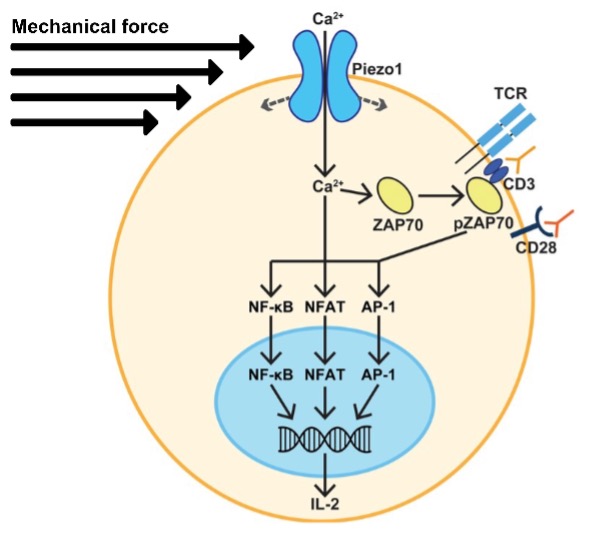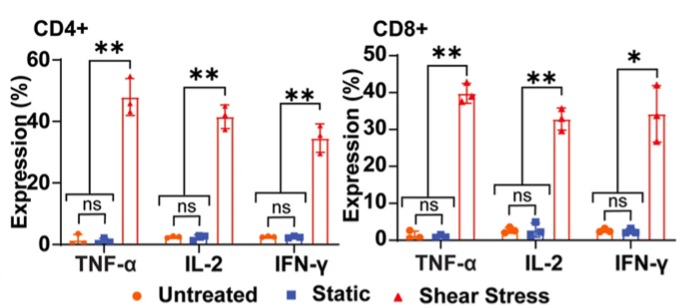Summary
Researchers at Vanderbilt University have generated a technique to enhance immune cell activation by exposing cells to mechanical force while culturing. Proof-of-concept data indicate that activating immune cells with this method may improve therapeutic efficacy and reduce manufacturing expenses.
Addressed Need
In recent years, adoptive CAR T cell therapies have emerged as an effective treatment for cancer and potentially other cardiometabolic and autoimmune diseases. However, existing methods for activating T cells by ex vivo culturing are expensive and inefficient, reducing access to this life-saving therapy. Furthermore, some methods that have been developed to improve activation, such as those using magnetic beads, are not effective in activating all types of T cells.
Technology Description
Vanderbilt scientists have pioneered a method for improving immune cell activation via mechanical force. Using equipment to apply a uniform fluid shear stress on T cells while culturing them ex vivo, the team triggered a mechanosensitive signaling pathway that drives the expression of cytokines like IL-2 (Figure 1). These cytokines contribute both to how cytotoxic the cells are and how long they persist in the body after reinjection to the patient.
Competitive Advantages
T cells activated with mechanical force have much higher levels of transcription factors and cytokines than those activated in static conditions– by as much as over 10-fold improvement in several cases (Figure 2). Higher cytokine levels improve the effectiveness and persistence of these cells, enabling improved therapies that could potentially reduce costs and increase patient access as well. Unlike other methods used today, this streamlined and highly standardizable approach is effective in activating immune cells of different types, such as CD4- and CD8-positive T cells and dendritic cells.
Stage of Development and IP Status
This approach for activating immune cells ex vivo has been validated using molecular techniques. The inventors are now confirming the potency of the activated T cells in targeting cancer cells, first in vitro and then in vivo using mouse prostate cancer models.
Patent: WO2023283514
Publication: JM Hope, et al. BMC Biology 2022

Figure 1: Schematic of immune cell activation by mechanical force. The mechanical force activates Piezo1, promoting calcium influx that drives the expression of immune cell activation markers.

Figure 2: Mechanical force enhances activation of CD4- and CD8-positive primary human T cells when used in combination with traditional immune cell activation techniques. Cytokine expression was increased broadly and by as much as 12-fold.




